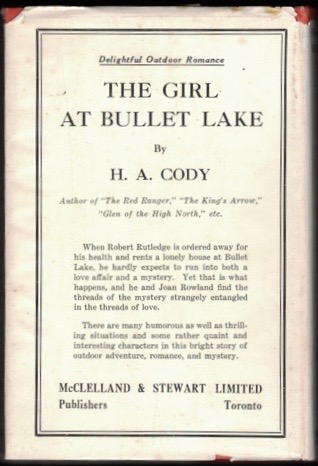 |
| The Globe, 6 December 1919 |
Last month, the Globe & Mail published 'The Globe 100', its annual list of the year's best books.
Why the hurry?
One hundred years ago, the best books were announced in December. The number of 1919 titles ‐ 247 in total ‐ hints at a particularly healthy harvest, though there's not much in the way of celebration. The list's introduction recognizes the "serious aspect" of then-recent titles being added to bookshelves: "One might have expected after the anguish of the war a reaction towards the amusing and frivolous, but in war's wake comes the necessity of reconstruction." So many new books deal with "the world-wide feeling of unrest":
The obligation, cheerfully assumed, of providing for the welfare of half a million returned soldiers has forced upon people an interest in every angle of the labor which many of them never felt before. This has been accentuated by a series of embarrassing strikes, and also the labor conferences in Ottawa and in Washington.Must say, "embarrassing" is not the adjective I would've used.
 |
| The Winnipeg Tribune 9 June 1919 |
As if labour troubles weren't bad enough, the Armistice has had a devastating effect on Canadian verse.
"The coming of peace did not bring such a chorus as might have been expected," notes the Globe. "Peace came on the poets so suddenly that it struck them dumb." In this, no country suffered a greater silence than Canada. It dominated the list of best poetry books in 1918 Globe – eight of thirteen titles – but in 1919 is reduced to just two volumes: Canadian Singers and Their Songs, an anthology compiled by Edward S. Caswell; and Flint and Feather, the complete poems of the late Pauline Johnson.
It gets worse. Flint and Feather was first published in 1912.
The fiction list isn't nearly so affected. Its 104 titles is dominated by foreigners Robert W. Chambers, John Galsworthy, Joseph Hocking, Anthony Hope, Peter B. Kyne, Compton McKenzie, Kathleen Norris, Sax Rohmer, Sheila Kaye-Smith, Booth Tarkington, and Francis Brett Young, but within we find sixteen novels by Canadian authors:
The Touch of Abner - H.A. CodyI've long been on the hunt for Stringer's The Man Who Couldn't Sleep. The brief description provided by the Globe encourages a doubling of my efforts:
Sky Pilot in No Man's Land - Ralph Connor
The Heart of Cherry McBain - Douglas Durkin
On the Swan River - Hulbert Footner
The Substitute Millionaire - Hulbert Footner
Bulldog Carney - W.A. Fraser
In Orchard Glen - Marian Keith
Mist of Morning - Isabel Ecclestone Mackay
Janet of Kootenay - Evah McKowan
Rainbow Valley - L.M. Montgomery
Polly Masson - William H. Moore
The Lady of the Crossing - Frederick Niven
Joan at Halfway - Grace McLeod Rogers
Sister Woman - J.S. Sime
Burned Bridges- Bertrand W. Sinclair
The Man Who Couldn't Sleep - Arthur Stringer
The Girl of O.K. Valley - Robert Watson
I'll also be on the lookout for Polly Masson by William H. Moore, a novel described as "propaganda of a praise-worthy kind... designed to bring about a better state of feeling between English and French-speaking Canadians."
Future Governor General John Buchan's Mr. Standfast appears twice.
Guess they really liked it.
Should I have counted Mr. Standfast as a Canadian book? As it stands, the country claims just fifteen percent of the fiction titles. On the other hand, Canada dominates in "Economic" (a category that doesn't feature in previous Globe lists):
On Labor problems Canadians have made valuable contributions, "Labor and Humanity" by Hon. Mackenzie King has reached its fourth edition and has been made a textbook at Harvard University. Prof. MacIver of the University of Toronto, Prof. Leacock of McGill and Dr. Lavell, formerly of Queen's appear prominently his year among those who have helped to create a better understanding of labor and reconstruction.Industry and Humanity, the Right Honourable Mackenzie King's newest book, is the first in a list of fifteen. Other titles by Canadians include:
Production and Taxation in Canada - W.C. GoodI wondered about The Canadian Commonwealth and The Unsolved Riddle of Social Justice. Turns out that I don't own either. I do have copies of The Heart of Cherry McBain, Burned Bridges, In Orchard Glen, Bulldog Carney, and Sky Pilot in No Man's Land.
The Canadian Commonwealth - Agnes C. Laut
The Unsolved Riddle of Social Justice - Stephen Leacock
Labor in the Changing World - R.M. MacIver
Bridging the Chasm - Percival F. Morley
Chances are I'll read them before Production and Taxation in Canada.
Related posts:

















